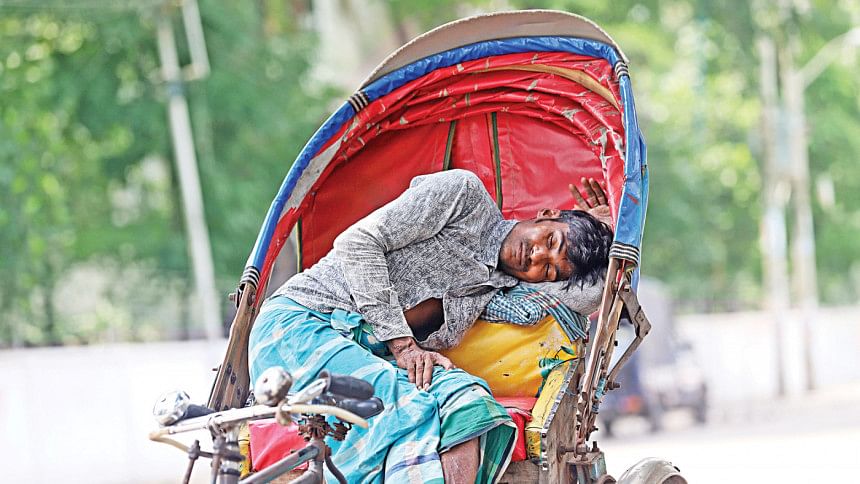Make sure economic recovery is not jobless

Use of telephone interview for a survey of income, expenditure and employment is rather ambitious, and I am wondering why a government organisation like the Bangladesh Bureau of Statistics had to resort to this method - even taking into account the difficult environment created by the Covid pandemic.
The response rate in such interviews is usually low, and the present survey is no exception – only 48.48 per cent. The sample size is very small – 989 respondents compared to 46,076 households for the 2016 Household Income and Expenditure Survey. Results from a survey with such a small sample and implemented by telephone should be taken carefully.
The questions on income and expenditure seek the respondents' "stated income". They can provide only an approximate idea about the real situation.
The question on unemployment also asks whether the respondent considers himself/herself as unemployed. Different respondents may interpret the question differently. So, the outcome has to be treated with caution.
If one takes into account the rate of inflation during 2016-2020 (5.5 per cent per year), the average household income for March 2020 turns out to be just about the same as that of 2016 (the latter adjusted for inflation). Does it mean that there was no increase in the real income of households during this period? That would not be consistent with the rate of GDP growth achieved during those years which was around 7.5 per cent on an average.
The rate of unemployment in March 2020 is reported as 2.3 per cent. The labour force surveys during the past two decades (since 2000) never showed the unemployment rate of less than 4 per cent.
What is more interesting is the decline in the unemployment rate from 22.39 per cent during April-July 2020 to 3.75 per cent in September. This sharp decline defies logic because it is quite well-known that economic recovery has just started, and various accounts indicate that the level of economic activities is still way below the pre-pandemic level.
It can be potentially dangerous if policymakers take the findings on unemployment seriously, because in that case, one may conclude that there is no need to do anything for boosting employment. It is being widely acknowledged that the labour market has been badly hit by the present economic crisis and the employment situation is quite precarious.
We also know from the experience of economic crises in various countries that labour market recovery follows economic recovery with a lag. Hence, rather than being complacent, we need to keep a close eye on the process of economic recovery and continue to adjust policies to ensure that it does not become jobless.
The writer is a former special adviser for employment sector at the International Labour Office, Geneva.

 For all latest news, follow The Daily Star's Google News channel.
For all latest news, follow The Daily Star's Google News channel. 



Comments